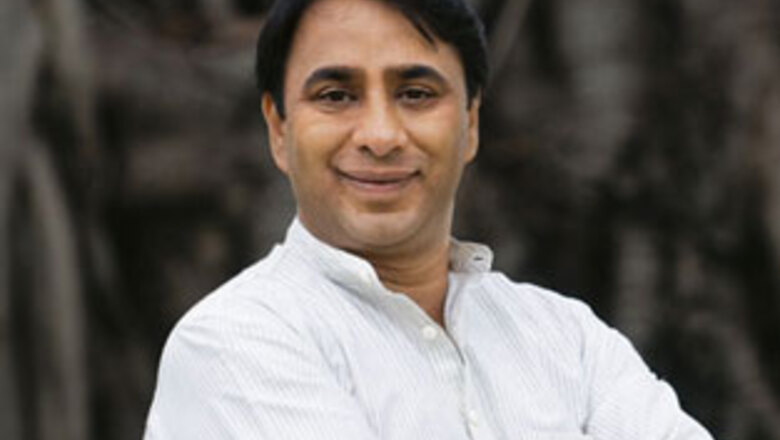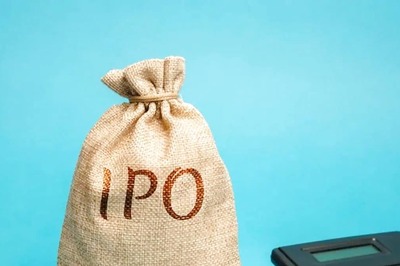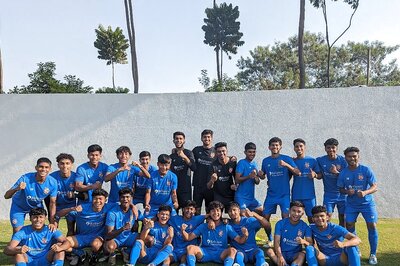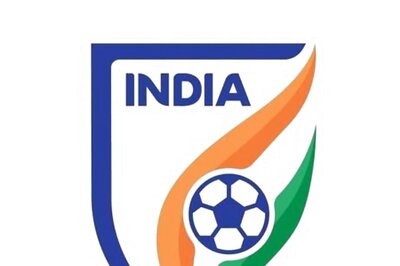
views
N ame: Vikram Akula
Age: 41
WHO: Founder of SKS Microfinance. The man who took the benefit of banking to 4.7 million poor families. Named by TIME as one of the world’s 100 most influential people.
His Legacy: Showed microfinance can attract private capital and build large scale.
His Big Moment: SKS is on the verge of becoming the largest MFI in the world, overtaking Grameen Bank, promoted by Nobel Prize winner Muhammad Yunus.
Next Milestone: Looking at a big bang IPO in the first quarter of 2010; to become the first Indian MFI to do a public listing.
His Dilemma: To find the golden mean between profit motive and social commitment.
On a rainy afternoon at a five-star hotel in suburban Mumbai, Vikram Akula is making a fervent pitch to a group of potential investors in the enterprise he founded, SKS Microfinance (SKS). Akula and SKS chief executive Suresh Gurumani take turns at the mike to impress on the rainmakers the advantages of investing in SKS, well on its way to becoming the world’s biggest micro-lender.
While their purpose is the same, the two men present a study in contrast. Akula, resplendent in his red kurta-pyjama, stands out against the dark-suited, ex-Barclays banker. While Akula tugs at the heart with his passion for the rural poor, Gurumani guns for the mind with staccato beats on operating margins, market share and return on equity.
On the stage, however, their rhythm is flawless. They tell the story of how SKS grew from a small not-for-profit with a mere 2,000 borrowers in 2001 to a vibrant company with 4.7 million customers in 19 states, a disbursement record of $1.8 billion and an outstanding loan book of $554 million. By any yardstick, these are impressive statistics.
Given that 90 per cent of India’s 3,150 microfinance institutions have fewer than 10,000 customers each, this sort of scaling up is an investor’s dream.
More importantly, SKS was one of the first to show that private capital could be harnessed to nurture sustainable livelihoods in villages. The company raised $153 million in equity capital along the way — a decisive show of harmony between the idealistic vision of Akula and the profit pragmatism of Gurumani.
Back at SKS, however, the two are not playing quite the same tune. The pressure from commercial capital for profit-linked growth is mounting and Akula must fight to save the social objective for which he founded SKS.
PAGE_BREAK
The conflicts are now testing the very model of serving the poor through tiny loans and freeing them from the hold of loan sharks. “In my view, SKS right now is trying to reconcile its split identity and re-architect what the company stands for,” says Anna Somos Krishnan, a former SKS executive and now executive director of Planet Finance India, an international NGO for the development of microfinance.
SKS, like the sector it represents, is at a crossroads today. The company is working to become the world’s largest microfinance institution (MFI) next year by overtaking Muhammad Yunus’ Grameen Bank with 8 million customers.
SKS is also on the verge of becoming the first-ever MFI in India to go public: It could sell its shares in an initial public offer in the first quarter of 2010 and thus offer existing shareholders an opportunity to book profits. Internal conflicts couldn’t have come at a worse time.
Not only is the management divided on how to grow, but is also facing charges of overstretching and ‘mission drift’ — of losing sight of its customers in favour of profitability and investor targets.
Yunus, widely regarded as the father of microfinance, shivers at the thought of mixing private profits and microlending. “Of course MFIs can serve the poor and make huge profit,” he tells Forbes India in an email interview. “But I would not support it. That’s what loan sharks have been doing over centuries. I don’t want to see new version of loan sharks under the guise of MFI.”
He will surely be reading the IPO prospectus. “In going for IPO, if SKS does not make it clear that they will make absolutely sure that their interest rate will not exceed 10 points over the cost of fund, I will get very worried. I don’t wish to see SKS following the Compartamos path,’’ Yunus says, referring to Mexico’s Banco Compartamos, whose similar model and 2007 IPO he criticised.
First Steps to Profit
What started as a small NGO called Swayam Krushi Sangam saw its big transformation to a profit-motivated MFI in 2004, interestingly, while the founder was away.
That year, Akula had stepped down and joined consulting firm McKinsey in Chicago. By mid-2005, SKS had become a non-banking finance company with investors like Vinod Khosla and Small Industries Development Bank of India.
PAGE_BREAK
The new investors wanted Akula back at the helm, driving the transition from non-profit to for-profit. “The investor group was going through its own education process. It was really a bet on Vikram and his years of experience in the field,’’ says Ashish Lakhanpal, managing director of Kismet Capital, the second largest investor in SKS.
Akula agreed to come back. His homecoming created microfinance history in India: Private investors pumped in $3 million into the company in March 2006. Vineet Rai, an old friend of Akula’s and the founder and CEO of social venture capital fund Aavishkaar, says, “The Vikram who went away was a soft spoken almost naïve, nice human being.
The one who returned from McKinsey was a clear visionary who knew how to build a large company. It’s the difference between saying ‘I want to go to the top of Mount Everest,’ vs. ‘I know exactly how to get there’.”
The Akula who returned from the US was also a man in a hurry. The story goes that Akula hired full-time staff to fill out award applications on his behalf. Akula denies this saying his staff filled out only two applications while he has won several recognitions: Schwab Social Entrepreneur of the Year (India), Ernst & Young Start Up Entrepreneur of the Year (India), Young Global Leader by the World Economic Forum to name a few.
Media across the world loved him. He was featured on CNN, the front page of the Wall Street Journal, and TIME magazine’s list of the world’s 100 most influential people. BusinessWeek named SKS one of the top five emerging and influential companies in the world in 2009 along with social networking site Facebook and online community for classified ads Craigslist.
Growth reached heady pace. In 2007 and 2008, SKS grew in excess of 200 per cent. By all reckoning, Akula seemed to have served the purpose of his return. It was then the company began the hunt for a different sort of leadership for the surge into the next level. Sequoia Capital, the largest shareholder, led the search.
“We have played an active role in building the company that goes beyond being a financial investor,” says Sumir Chadha, Sequoia’s MD. Akula also understood what his company needed. In December 2008, he formally relinquished control to the new CEO, Suresh Gurumani.
But by the time Akula quit, employees say he was long gone. “Honestly, Vikram hadn’t been around for a long time. He was the faceless guy who had started this place and then sort of disappeared. He was CEO in name alone.”
But for Akula, it was an emotional parting. “I cried… But I know what I’m good at and what I’m not.” In Akula’s mind, it was time SKS got a professional with the financial acumen required for a large-scale financial institution.
Enter Suresh Gurumani, a hard-boiled retail banker for 22 years. He was instrumental in launching retail banking at Barclays India, as well as Barclays Finance, a non-banking finance company (NBFC) with 120 branches across 40 cities to create alternate distribution channels. Prior to that, he headed SME Banking at Standard Chartered, an association he held for 12 years.
PAGE_BREAK
With a plan to reach 15 million customers by 2012 and 50 million eventually, SKS is a company in a hurry. But not everyone in the microfinance industry is impressed. “Whose need is this, to grow at unheard high growth of more than 200 per cent? Is it the need of the investors?’’ asks D. Settaiah, chief operating officer of Bhartiya Samruddhi Finance (BASIX), the first MFI in India to get foreign funding.
For Akula, the answer lies beyond the Yunus school of thought. “Professor Yunus believes microfinance should be a social business — you get social capital and you return no profit. Grameen Bank reaches 7 million clients and that’s amazing.
On the other hand, it took Professor Yunus took 35 years to do that… Can you imagine how many generations it will take to reach 150 million poor households in India if we took that approach? We have to scale more rapidly, and only commercial capital will meet our huge funding requirements. The only way to get that is to be not only profitable but extremely profitable,” he says.
Ever since private capital began to course through its veins, the culture at SKS too has started transforming. With Akula often visiting the US, the second-rung leadership which ran the company brought in lot more changes. Somos Krishnan, who spent nearly a year and half at the MFI, recalls how the informal mojo gave way to the stifling air of buttoned-down formality.
“We often had debates about whether self-congratulatory emails on reaching certain milestones (number of clients) were the best ways to motivate employees.”
Another source, who is aware of the situation inside the company, says, “It’s like the story of the boiling frog. You put it in really hot water and it will jump right out. But if you put it in warm water it won’t realise what’s happening till it’s too late.”
The situation at SKS became clear to employees once Gurumani had officially taken over and Akula became chairman. Early this year, Akula was back at SKS after a few months. According to some reports, Gurumani and Akula started clashing over management and personnel issues. “Suresh confuses enforcing cultural principles and values via PowerPoint and actually living those principles through the organisation,” says one industry source who asked not to be named.
“Suresh and Vikram are diametric opposite in some ways.” That difference was visible in the staff appraisals for 2008. Akula had done those for the first half and Gurumani and Rao handled it for the second half. Some of the staff found that their performance review were as different as chalk and cheese. It was eventually resolved, but most employees picked up the message.
“I think that’s when things started to become obvious, about how different these two really were. I think Vikram realised that too late. He waited for the exact minute he had no power left to come back,” says one source previously associated with SKS. “That’s why he’s returned. His entire wealth and reputation is tied to this company. Sadly, the investors might not need him anymore even though without him this company has no heart.”
PAGE_BREAK
Others argue that Gurumani is in a tough situation and is only doing his job. “Do you know how much he had to come in and clean up? He is just being professional. Vikram used to sit in the States and hire all these Ivy League expats with little or no knowledge of India. And then they’d arrive at our doorstep for us to deal with,” says one former employee at SKS. Both Akula and Gurumani have admitted that there were disagreements. They, however, cite these as transitional hiccups and both men say they have tremendous respect for each other.
“Sometimes the strength of my personality also gets in the way a little bit — the founder has quite a bit of gravitas,” Akula says chuckling. Today, there is a clear division between the roles of both men. Akula handles the broader public and policy matters and helps management devise strategy. Gurumani looks after daily operations and is the investor interface.
The company, however, cannot be a prisoner of personality clashes. Its primary objective is to finance means of sustainable livelihood. Or, is it?
Capital Rush
When Akula envisioned SKS as a self-help society, 30,000 people from the beneficiary community came together to found it. Today they are represented by the Mutual Benefit Trust (MBT) and Akula himself. As SKS sought more and more private capital, the holding of MBT has been diluted from 40 per cent in 2005 to just 15 per cent now. Any more share issues could further reduce the stake, marginalising the community’s say in the affairs of SKS. “You want to know which direction SKS is heading? Just look at the structure of the board. Vikram is the lone wolf playing the social card,” says one employee who prefers not to be named. Akula wants more say for the trust, but the management thinks otherwise (See box above).
SKS received several rounds of private equity investment between March 2007 and November 2008, each time setting a new record. If Sequoia was the first traditional venture capital firm to bet on microfinance by investing $11.5 million in SKS in 2007, the US-based Sandstone Capital became the largest venture capital investor in an MFI leading a $75 million round in November last year. Kismet Capital, another US venture fund, holds the second largest shareholding in SKS. Sandstone currently has the fourth largest shareholding of 12.5 per cent, followed closely by Vinod Khosla. Recently, SKS announced a $10 million strategic investment from general and life insurance firm Bajaj Allianz Life Insurance.
“Sandstone put in around $50 million in SKS in the last round of investment. At that time everyone thought it was too high a price,” says Anurag Agrawal, senior vice president for investment banking at strategic services firm Intellecap. “But today SKS’ valuation is at half a billion dollars… If they go for an IPO with a valuation of $1 or $2 billion, can you imagine the returns Sandstone will get?”
An IPO by SKS will set crucial benchmarks for the microfinance industry. Rival Share Microfin is also considering an IPO in the next two years. This year, the company has received an equity infusion of Rs. 250 crore from investors. Udaia Kumar, managing director of Share Microfin believes investors are here to stay. “There is great need for organised forms of banking which cater to the bottom of the pyramid.”
PAGE_BREAK
Venture fund capital flow into Indian MFIs has increased since January 2008. MFIs accounted for a score of about 50 private equity deals struck in the past 18 months. They whisked away a fifth of the $1 billion invested. According to Intellecap, the size of the microfinance market is $50 billion considering India’s 150 million poor households. Market penetration is still believed to be just 10 per cent of what is required. In fact, 40 per cent of India’s population is unbanked, while MFIs have been able to reach only 114 million people with a loan portfolio of over $1 billion, leaving it immense scope to grow. Which means India is the largest market for microfinance globally. It is simply an irresistible pie and everyone wants a slice.
The Potential Cost of Failure
While all of this is good news for MFIs as they look to grow and attract more capital, how much of the commercial bottom line is coming at the expense of their social mission? Can microfinance be about poverty alleviation as well as profit generation?
Somos Krishnan says he used to conduct analytical exercises where both loan officers out in the field and the head office staff were asked to draw the picture of a typical SKS client. Only the pictures drawn by loan officers would resemble anything close to the real thing.
Both Akula and Gurumani say they’re focussed on the customer. “Long term shareholder value only comes if you treat the customer right,” says Akula. But at SKS, the custodian of that ideology might well be Gurumani. Akula is no longer in charge of day to day operations. Gurumani sums up his position thus: “While return on equity is important, I believe it is more important to focus on customers and build an institution. Once you do that, the financials fall in place.”
Some MFIs such as BASIX feel high growth rates do not qualify as poverty alleviation. It is for this reason that it has chosen to go beyond micro credit and engage in other aspects of its customers’ needs. Livelihood creation has meant BASIX is much smaller in size and is more focussed on meeting the broader needs of the poor.
Even Gurumani sounds a cautious note. “I have seen in my tenure as a banker that reckless growth often leads to pain. To ensure that SKS did not have to go through this pain, we slowed things down a little bit and concentrated more on getting our systems, processes and technology back end finely tuned. This will enable us to push SKS into a higher orbit in the years to come.”
This year, SKS will see its growth rate halve to a 100 plus per cent.
As the forerunner, if SKS fails to find the right balance between creating social value for its customers and economic value for its investors, it may have a ripple effect throughout the industry. Padmaja Reddy, founder and promoter of Spandana Sphoorty Financial, the second largest MFI in India, expresses concern over SKS’ push for going public.
“They are growing in silos. And this will cost the consumer and other industry players because if things don’t go well or if senior management leaves or if they are not successful in the IPO and can’t keep up growth or profitability, all of us get impacted. I suppose there are pressures from their investors to go for an IPO. Either that or senior management wants to cash out,” says Reddy.
PAGE_BREAK
Google of Microfinance
Both Akula and Gurumani are looking to expand SKS’ customer base. Yet they don’t seem to agree on how it should be done. Akula sees potential to innovate and expand across products and services for the poor. His favourite analogy is comparing the possibilities of SKS’ distribution network to that of Google’s: The way to the bottom of the pyramid is through the MFI.
“Companies have started tapping the rural upmarket — no one has really managed to access the rural low market. If we get this right, this is Retail 2.0,” Akula says. So SKS is examining the possibilities of using its vast distribution network to sell everything from micro insurance to mobile phones. It has even tied up with German retailer Metro Cash and Carry to extend credit to small provision stores.
Guramani, on the other hand, prefers to stick to the knitting. The SKS model relies on standardising and mechanising processes, borrowing from the operational practices of the likes of McDonald’s and Starbucks. Gurumani wnats to focus on retail financial services. He’s pushed hard for distributing a health insurance product, which guaranteed 24 hours of hospitalisation for a family of four.
The pilot was hugely successful, but when the product was actually rolled out, it wasn’t working. “We rolled it out too fast. The loan officers hadn’t been trained to properly communicate the preconditions to the customers. So we’ve currently pressed the pause button on the project,” admits Akula. But that came after considerable fire-fighting with the new CEO, who felt they could fix the problems as they went along.
Last year, a study by consultancy Monitor Group exploring how MFI’s could leverage their distribution channels for non financial products, found that 85 per cent of its survey sample of SKS borrowers wanted credit for aspirational goods such as TVs and gold coins. Less than 10 per cent wanted loans for socially beneficial goods like solar lanterns or water purifiers.
Yet Akula doesn’t quite agree that SKS ought to focus on aspirational goods. “From a business perspective we’ll do aspirational goods when we have exhausted a majority of my customer needs. I’ve made an argument that returns on social responsive goods will be higher than those on aspirational goods, and my investors are on board.”
At SKS, for over a year now there has been a debate about whether or not to sell gold to customers. The predicament remains unresolved, but some see Akula as the last bulwark against the final assault of the bean counters. Says an insider, “Vikram absolutely refuses to [sell gold]. The board has been pushing for it, but he is very clear he doesn’t want it. SKS hasn’t gone completely to the dark side.”
This retail push has raised murmurs that SKS is not looking enough at creating socially beneficial products and is trying to push for a consumption wave. “The focus is becoming more and more toward corporate investors and they are trying to maximise the distribution channel. For instance, a hair dye company wanted to know how consumers would react to their hair dye. So SKS, through four-five of its branches gave out a sample to its customers. SKS then sent that survey back to the company — they sold it to them, sometime in June this year,” says an industry source.
PAGE_BREAK
Tarun Khanna, professor at Harvard Business School and an independent director on the SKS board, is clear what the company’s priorities should be. “You would be shooting yourself in the foot if you tried to feed something to the consumer they did not need,’’ says Khanna. He says many companies use MFIs to get access to a wider customer base. SKS has to be careful about not doing something that violates the trust of the poor customer. “To my mind, the fundamental question should be we’re in the business of income generating loans — if what we sell helps in that role and it is also earning margins for us then it is OK. The other things you discontinue.’’
Breach of Trust
When SKS formed a non-banking finance company as part of its commercialisation, as many as 30,000 borrowers came together and contributed Rs. 4.55 crore to its equity. They gained a 40 per cent stake in the company. They were pretty much the safe keepers of SKS’ commitment to put above everything else the interests of the poor women it served.
But as private capital started coming in, their stake started getting diluted. In February 2007, Akula tried to get foreign grant to help the borrowers maintain their stake. He did not get that grant. As a result, the Mutual Benefit Trust (MBT) that owns the shares on behalf of the community saw its ownership fall to 25 per cent after the second round of funding with Sequoia. Later, this ownership plummeted to 15.6 per cent.
If SKS gets a valuation of $1 billion, this stake would be worth as much as $150 million. But those brought on to protect the interests of the MBT have been against diluting the customers’ stake in the company as it might lead to less say for the borrowers in the future of SKS.
Just before the fourth round of funding, the company board wanted to sell the shares for further equity infusion for the company. The advisors for MBT resisted this.
“We wanted the money from the shares, if sold, to be ploughed back into infrastructure schemes benefitting the community,” says Vijayalaxmi Das, CEO of Friends of Women’s World Banking and a former advisor to the Trust.
However, Akula was pushing for the proceeds from the sale of the shares to go towards another purpose entirely: the Ultra Poor Programme (UPP), the big banner project of the SKS NGO. The UPP was aimed at the poorest of the poor, those below traditional MFI reach.
The idea was to engage them in some sort of livelihood enterprise creation, but some of the advisors felt the UPP was an expensive publicity stunt. There was a Rs 20,000 cost per beneficiary, bulk of it going toward operational and administration expenditure.
They quit.
And fears persist that borrowers will lose even the little say they have now.




















Comments
0 comment